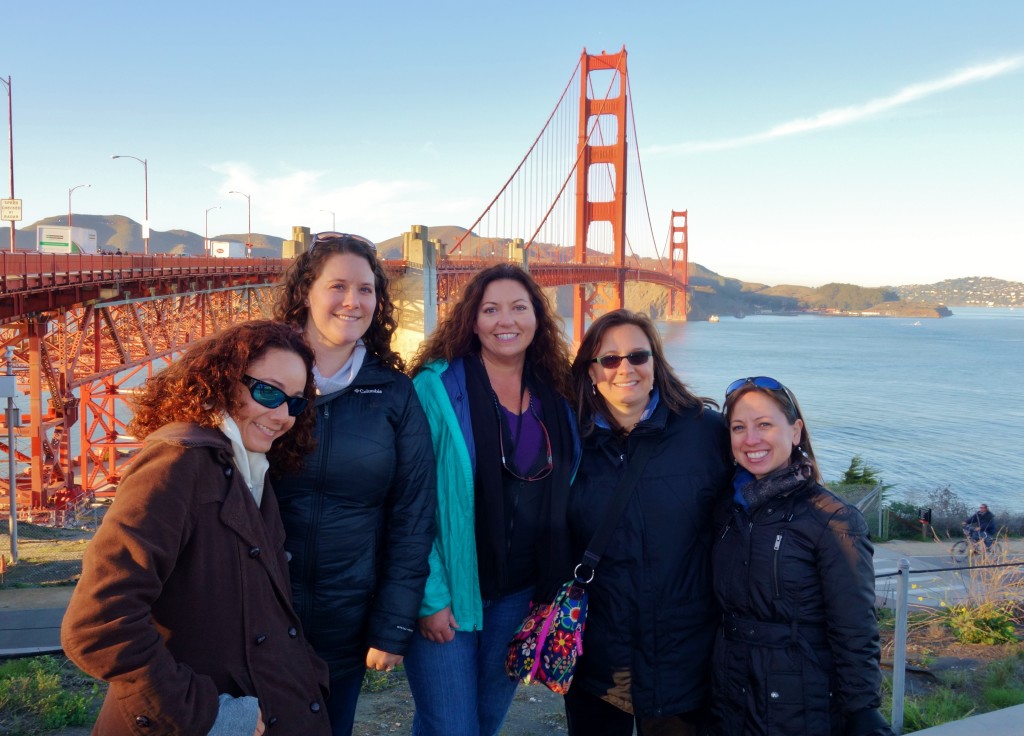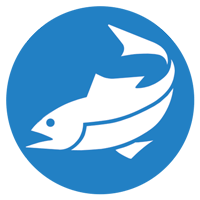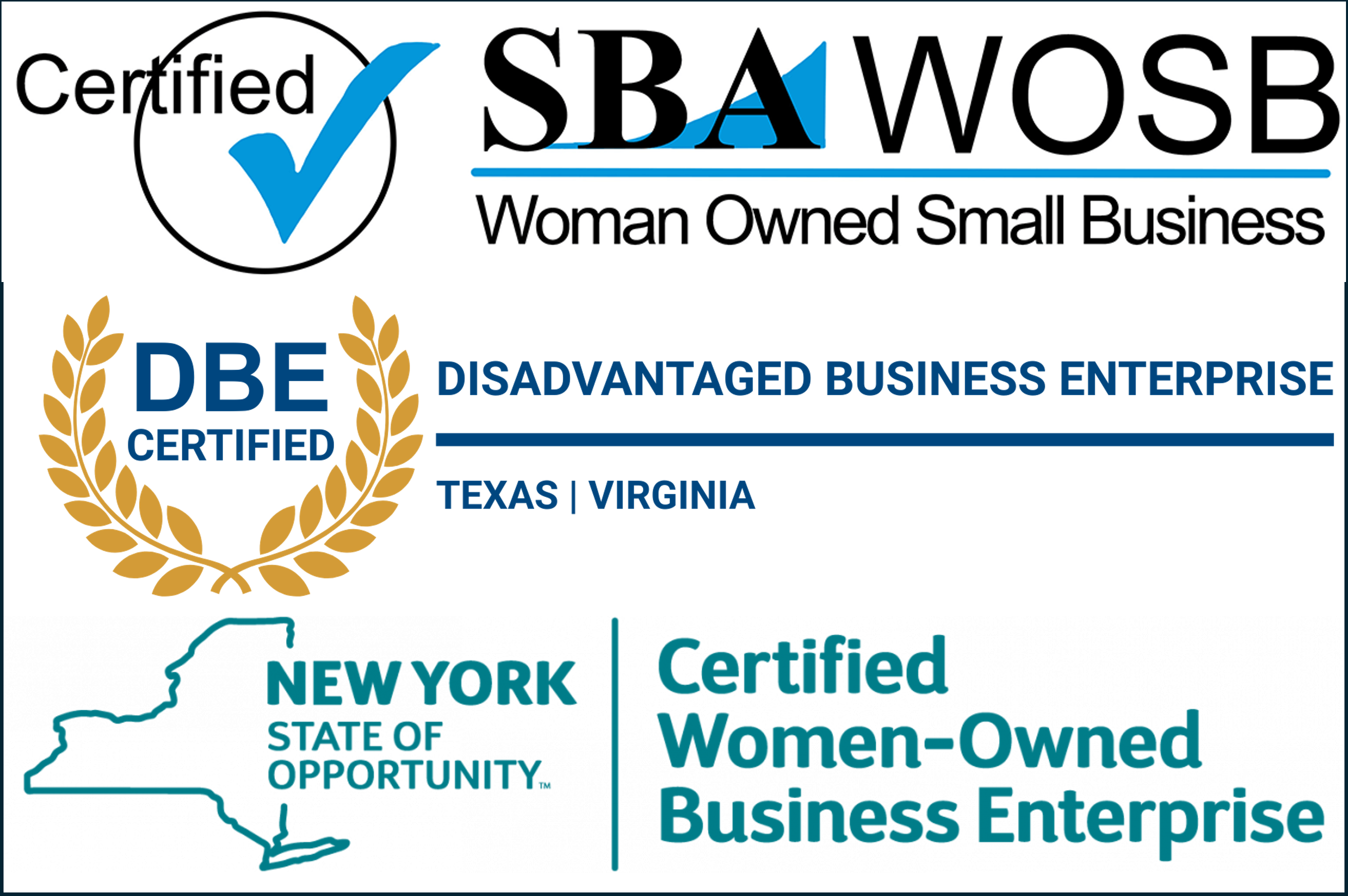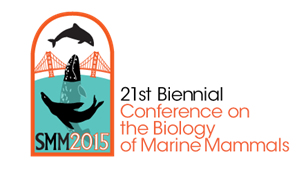
Over 2,500 marine mammalogists from across the globe recently congregated at the Hilton Union Square in San Francisco, California, during December 13-18 for the 21st Biennial Society for Marine Mammalogy (SMM) Conference on the Biology of Marine Mammals.
Filled with presentations, pinot, and porpoises, the conference was a hit! The City by the Bay provided the perfect meeting spot for this conference. The city is not only where the international SMM was founded in 1981, but San Fran and the greater central California coast region are also home to over 30 marine mammal species.
In this blog article, we share some of our favorite moments of the conference.
New additions to the typical SMM conference included a conference smartphone app, five concurrent oral presentation sessions, and a “LGBT Night”. Although the extra concurrent sessions proved challenging for those wanting to bounce between sessions, the app was a very useful addition to the conference. We used the app to get updated conference information, plan our schedules for attending oral and poster presentations, and connect with other conference attendees.
Eileen Sobeck (Assistant Administrator for Fisheries, NOAA) kicked off the start of the conference with her opening address which corresponded to this conference’s theme “Bridging the Past with the Future”. Eileen shared several of NOAA’s successes since the 2013 Biennial conference and stressed the importance of developing collaborative approaches for tackling the current and future challenges and issues that we face in conserving marine mammal species, populations, and habitats. Because science is the foundation for regulatory support, Eileen stressed the need to bridge science and government in order to maintain a continuous feedback loop between science and management.
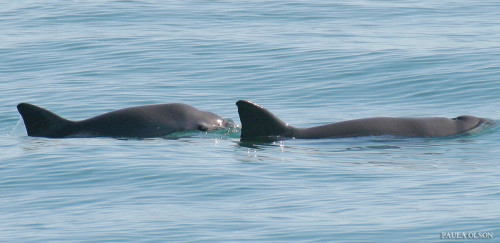
A notable example of how bridging science and government can enhance conservation efforts was presented with the winners of the SMM’s Conservation Award. On the heels of the Vaquita Expedition 2015 which ended just prior to the conference, the Conservation Award was given to President Enrique Peña Nieto and Environment and Natural Resources Secretary Rafael Pacchiano Alamán for Mexico’s efforts to conserve the vaquita, a small porpoise that is endemic to the upper Gulf of California and is the most endangered marine mammal in the world. Pacchiano, who accepted the award, applauded the efforts of local fishermen who support the suspension of fishing and who are working with other stakeholders to develop new fishing techniques. He also paid tribute to those who have worked tirelessly to increase the size of the vaquita protected area, develop a strong surveillance program enforced by the Navy, and amend laws so that illegal fishing activities result in harsher penalties including jail time.
One of the most lively and insightful panel discussions of the conference was “How to Make Your Science Matter”. This panel discussion was moderated by Nancy Baron (COMPASS’ Director of Science Outreach) and included six panel members representing scientists, managers, writers, and editors. Outreach and communication can be difficult for us scientists who often struggle to engage the public and policy makers with our knowledge and research findings. We often focus too much on the details of our research and use scientific jargon which causes our audience’s eyes to glaze over within the first minute of our discussions. The panel members gave great tips that all scientists can use to improve their communication skills. For example, Dr. Jane Lubchenco (U.S. Science Envoy for the Ocean and former head of NOAA) suggested that we learn to listen, have a core message that includes answers to the “Why Care?” question, be warm and not just competent, and learn the language of lay people. Charles Littnan (NOAA Fisheries Hawaiian Monk Sea Research Program) emphasized the importance of designing research studies so that they involve citizens in order to gain local trust. To those scientists who expressed difficulties in getting certain people interested in their work, David Malakoff (Science Deputy News Editor) said “every story has an audience”. We must find ours and practice using these tips to effectively communicate our science.
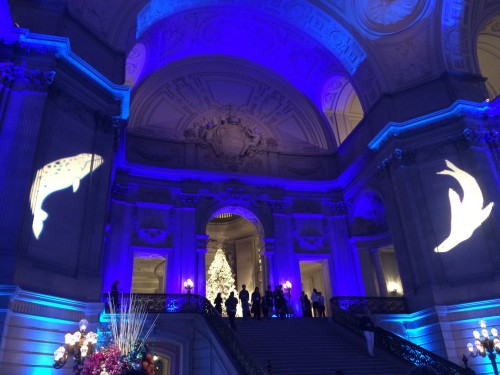 The conference culminated in the conference’s 21st birthday party at San Francisco City Hall. In a casual atmosphere, we dined on a buffet of ethnic treats, sipped the free-flowing local California wines, and danced to Linda Tillery’s Soul Explosion. The celebration was a perfect end to a long but rewarding week of learning, inspiring, and communicating science with our marine mammal colleagues.
The conference culminated in the conference’s 21st birthday party at San Francisco City Hall. In a casual atmosphere, we dined on a buffet of ethnic treats, sipped the free-flowing local California wines, and danced to Linda Tillery’s Soul Explosion. The celebration was a perfect end to a long but rewarding week of learning, inspiring, and communicating science with our marine mammal colleagues.
We look forward to seeing our colleagues again at the 22nd Biennial in Nova Scotia in 2017!
#MarMam15
